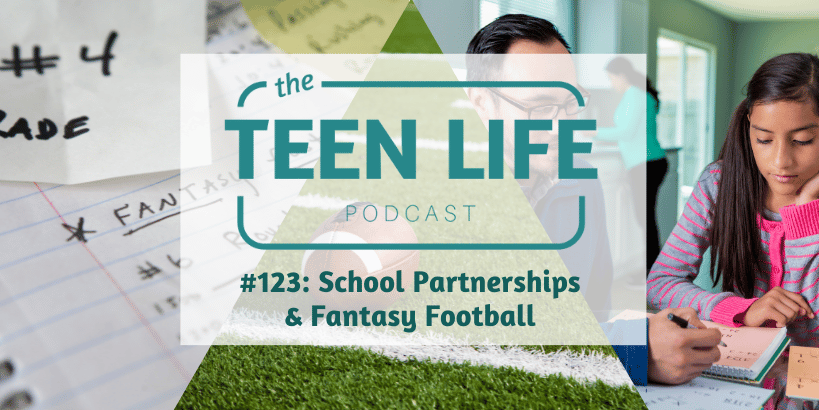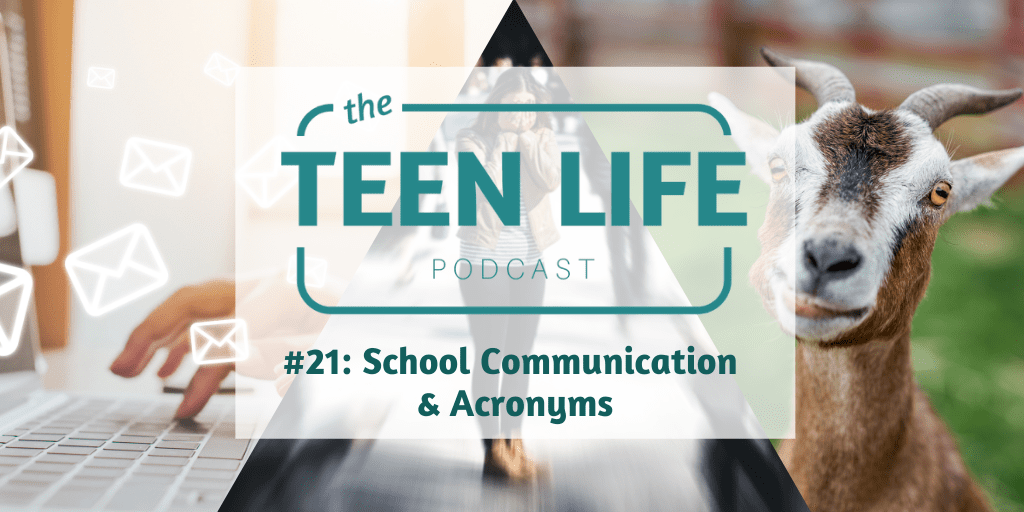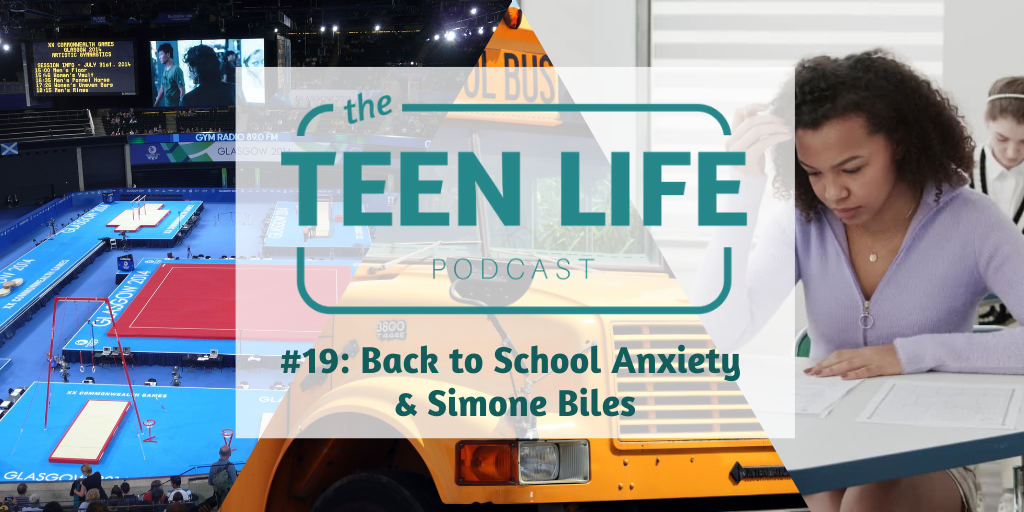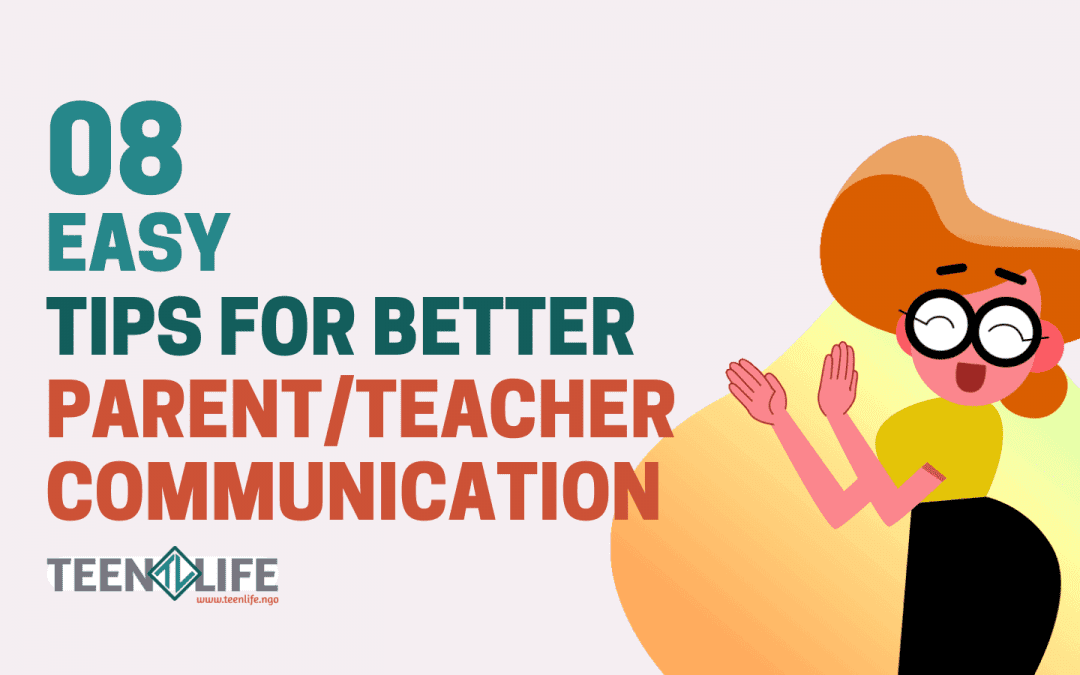
#123: School Partnerships & Fantasy Football
Podcast: Play in new window | Download
How to build home-school partnerships to help students succeed
Practical ideas for how to partner with the school well.
As a parent, it can be easy to let our past relationship with school as a student or as a parent of an older child color our current relationship with school. If we’ve had great experiences before, it’s a lot easier to hope for a great experience this year. But if you’ve had a negative experience, the flip side of the coin is also true. It can be easy to start believing the worst. That’s totally normal!
That’s why it’s essential to treat every year as a chance for a new start, for you, your kids, and your school.
In that vein, we’ve got a few ideas on how to get off on the right foot.
Be intentional about building positive relationships with school staff (teacher, principal, coach, front office, counselor, etc.)
It makes it easier to communicate with someone when there is an issue if you already have a relationship. You also have more compassion for people you know.
It feels more like everyone’s on the same team when you know people’s names and voices. It could start with a simple conversation or a small gift.
Just like with any friend, be respectful and believe the best of the teachers in your life. If there is a problem, talk to them instead of assuming the worst or talking bad about the school.
Have a good attitude about school!
Your attitude will be contagious when It comes to extracurriculars, homework, school rules, etc. If you set an upbeat tone, your kids are more likely to follow.
Your attitude is also key when it comes to school work. If you want to instill a life-long love of learning in your kids, focus on growth and not perfection. It’s hard for most parents to celebrate effort instead of results, but try exchanging a vague “good job!” with “wow you should be really proud of how hard you’ve worked!”
Part of having a good attitude about school can be supporting your general school community. Volunteer at the school when needed. Go to games or shows (even if your student isn’t part of it). Encourage teachers and staff.
When we feel like we’re part of a larger community, everyone benefits and students are more likely to feel like they are capable and able to reach out when they need help!
Create a good home environment for learning
In a busy world, it’s easy to overlook this one. Between sports practice and music lessons and life, being intentional about homework models executive functioning skills (think organization and self-control) for your kids that will help them in every aspect of life.
Here are a few tips on how to do it:
- Set aside a place for students to study or do homework.
- Create a routine that helps your student succeed at home.
- We know everyone is busy, but make time to be available while your kids are working on homework.
Should Your Teen Play Fantasy Football?
So what is fantasy football?
You select your own team of players, setting a lineup every week. Then, you watch as they run, pass, catch and score touchdowns, all of which are worth fantasy points.
Every week, you are matched up with someone else in your league, and whoever has the most fantasy points that week, wins!
At the end of the “fantasy season,” there are also usually playoffs to crown the winner of the league.
Benefits of fantasy football for teens
- Kids can learn executive function and problem-solving skills playing fantasy football.
- Academic skills such as math and reading are also routinely used in fantasy football.
- Fantasy football can be an engaging way to leverage technology use into a family activity.
- It can lead to connection if you do it as a family or if they play with friends.
Things to consider before your teen plays fantasy football
- Encourage teens to play with people they know and not join random leagues.
- Make sure you are monitoring their interactions with strangers.
Any online platform can be used to groom kids to participate in other activities. It’s vital that you know who they are talking to and have honest conversations about the potential dangers. Help them understand that you never really know who you are talking to and they reality of sextortion and kidnapping. - Have conversations around money and gambling.
Many leagues have a “buy in” at the beginning of the season so that the winners get money at the end. Gambling, including microbetting and sports betting is highly addictive, especially if they win. So use this as an excuse to start a conversation about it.
Fantasy football can be a great way to connect with your teenagers.
Ask about their team; ask about trades; watch games with them on the weekend; and cheer for their players! The more you get excited about things they are excited about, the more trust and connection you can build.
In this episode, we mentioned or used the following resources about home-school partnerships and fantasy football
- ESPN: Fantasy Football’s Beginner Guide
- Psychology Today: Should Kids Be Allowed to Play Tackle Football—or Fantasy?
- Instagram: Ways to make teens feel respected
- Teen Life Podcast: Back to School | School Communication | Apologizing | Diverse Families – Single Parent Families
- Teen Life Blog: Why Apologizing Matters for You and Your Kids
- Podcast music by Luke Cabrera & Tobin Hodges
Have a question?
About Us

Chris Robey
Former CEO

Karlie Duke
Communications Director
Chris Robey | Former CEO
Chris has spent most of his career empowering teenagers from all backgrounds. As the former leader of Teen Life, he is passionate about helping students make good choices while also giving adults the tools they need to communicate more effectively with teens. Chris is a graduate of Midwestern State University and holds a Master’s Degree in Family Life Education from Lubbock Christian University.
Karlie Duke | Director of Communications
Karlie has always had a heart for teenagers. Through her role at Teen Life, she loves to showcase the amazing stories coming out of Support Groups, but she is especially passionate about helping adults and teenagers find connection. Karlie has a BS in Communications with a minor in Family Studies from Abilene Christian University.













